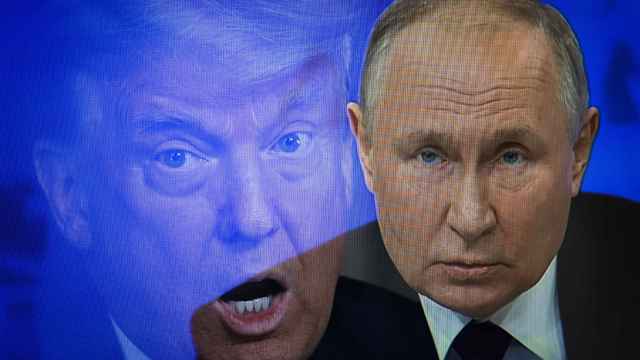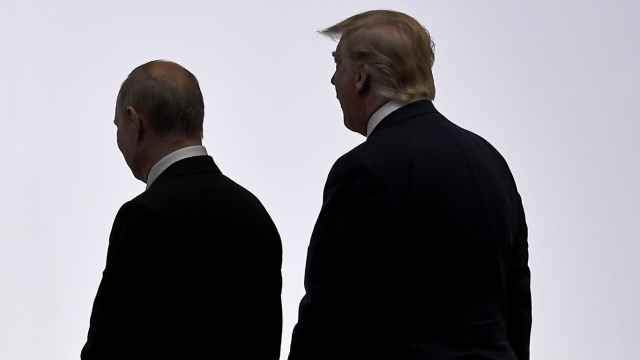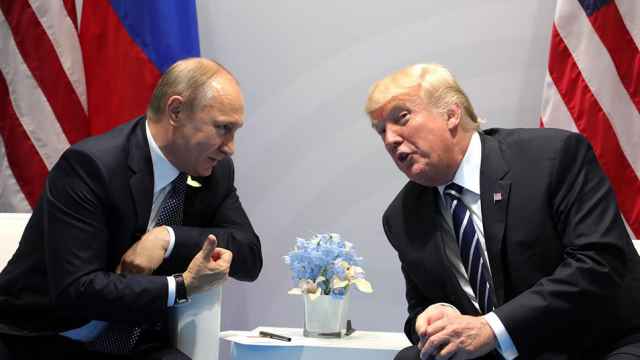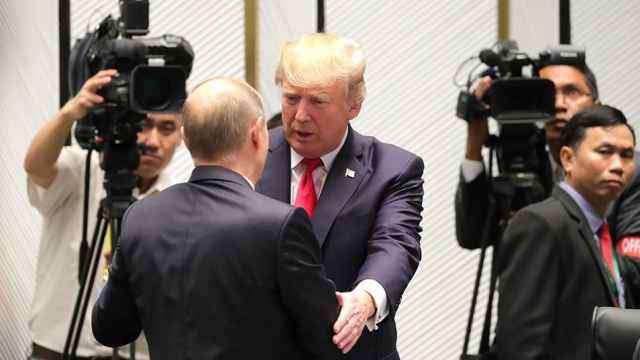Lovers of literary journalism aimed at the intelligentsia are in for a surprise. On March 6, readers of The New Yorker will find the name of their beloved magazine transformed into Russian — The Нью-Йоркер.
Below the Cyrillic headline, artist Barry Blitt has depicted the magazine's longstanding patrician mascot, Eustace Tilley, as Eustace Vladimirovich Tilley — essentially a dainty Vladimir Putin with a monocle.
Like the original Tilley, Putin is portrayed eyeing a butterfly — except this butterfly has the face (and necktie) of U.S. President Donald J. Trump.
The unusual artwork accompanies a cover story titled “Trump, Putin, and the New Cold War,” by Evan Osnos, David Remnick, and Joshua Yaffa. The article investigates the scandal surrounding Trump's supposed connections to the Kremlin and Russia's alleged hacking of the U.S. presidential election.
The Eustace Tilley character dates back to The New Yorker's first cover in 1925. Usually, he bears no resemblance to Vladimir Putin and does not have a patronymic name. Also, Donald Trump is not typically the butterfly in the image.
A Message from The Moscow Times:
Dear readers,
We are facing unprecedented challenges. Russia's Prosecutor General's Office has designated The Moscow Times as an "undesirable" organization, criminalizing our work and putting our staff at risk of prosecution. This follows our earlier unjust labeling as a "foreign agent."
These actions are direct attempts to silence independent journalism in Russia. The authorities claim our work "discredits the decisions of the Russian leadership." We see things differently: we strive to provide accurate, unbiased reporting on Russia.
We, the journalists of The Moscow Times, refuse to be silenced. But to continue our work, we need your help.
Your support, no matter how small, makes a world of difference. If you can, please support us monthly starting from just $2. It's quick to set up, and every contribution makes a significant impact.
By supporting The Moscow Times, you're defending open, independent journalism in the face of repression. Thank you for standing with us.
Remind me later.





